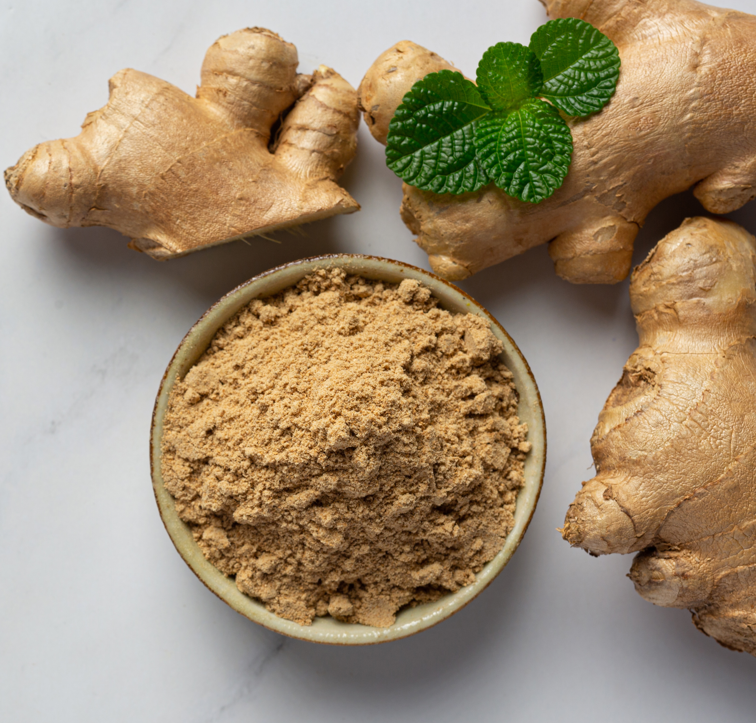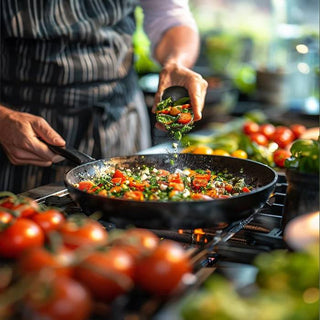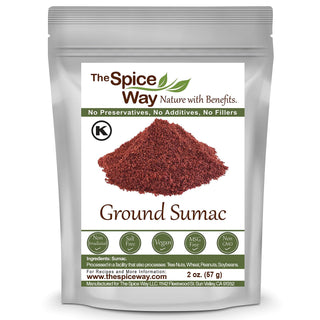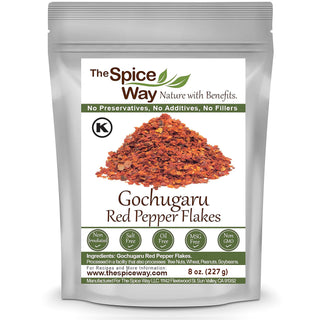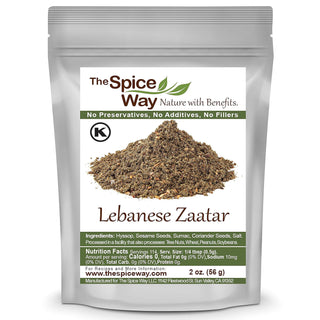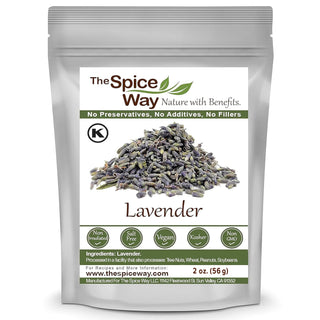Ginger has been a staple in kitchens around the world for centuries, prized for its warm, spicy flavor and numerous health benefits. But when it comes to cooking, you might have noticed two terms often used interchangeably: ground ginger and ginger powder. Are they really the same, or is there a subtle difference you should know about? Let’s explore.
Ground ginger is made by drying fresh ginger root and then grinding it into a fine powder. This process concentrates the flavor, giving it a warm, slightly sweet, and pungent taste. Ground ginger is convenient, long-lasting, and ideal for baking, marinades, and spice blends.
Key Differences
While the terms are often synonymous, there are a few subtle differences worth noting:
-
Texture – Ground ginger may be slightly coarser, while ginger powder is often finely sifted.
-
Flavor – Ginger powder may taste slightly more concentrated or sharper due to processing differences.
-
Additives – Some ginger powders include anti-caking agents, which ground ginger typically does not.
-
Regional Labeling – In some countries, "ground ginger" is more common, while "ginger powder" is the preferred term elsewhere.
Cooking Tips
-
Baking: Use either ground ginger or ginger powder in cakes, cookies, and bread. If using a stronger ginger powder, reduce slightly to avoid overpowering the dish.
-
Savory Dishes: Both forms work well in soups, curries, and stir-fries. Begin with smaller amounts and adjust to your taste.
-
Substituting Fresh Ginger: Keep in mind that dried ginger (whether ground or powdered) is more concentrated than fresh ginger. A general rule is that one teaspoon of dried equals one tablespoon of fresh.
Storage Tips
Keep ground ginger or ginger powder in a cool, dark, and dry place, tightly sealed to preserve its flavor and potency. Over time, the spice may lose its aroma, so it’s best used within 6–12 months for optimal taste.
Culinary Uses Beyond Baking
While ginger is famously associated with baked goods like gingerbread or cookies, its powdered form has versatile uses in global cuisine:
-
Asian Cuisine: Curries, stir-fries, and marinades benefit from the warm kick of powdered ginger.
-
Beverages: Add a pinch to teas, smoothies, or even golden milk for a warming flavor.
-
Soups and Stews: Sprinkle ginger powder into broths for a subtle spiciness.
-
Meat Rubs: Combine with garlic, paprika, and other spices for a flavorful dry rub.
Using ground ginger or ginger powder allows you to distribute flavor evenly without the fibrous texture of fresh ginger.
Nutritional Insights
One teaspoon of dried ginger (ground or powdered) provides:
-
Calories: Approximately 6
-
Carbohydrates: About 1.3g
-
Fiber: Around 0.2g
-
Vitamins & Minerals: Trace amounts of vitamin B6, magnesium, and manganese
Beyond its nutritional content, the medicinal benefits of ginger remain largely intact in its powdered form, including aiding digestion, reducing nausea, and supporting anti-inflammatory functions.
Tips for Maximizing Flavor
-
Toast the Powder: Lightly toasting ground ginger in a dry skillet before adding it to recipes can deepen its aroma and flavor.
-
Combine with Complementary Spices: Ginger pairs beautifully with cinnamon, nutmeg, cardamom, and cloves in sweet dishes, and with garlic, cumin, or turmeric in savory recipes.
-
Check Freshness: Over time, ginger powder loses its potency. Rub a small amount between your fingers and smell it; if the aroma is weak, it’s time to replace it.
Baking and Cooking Tips
-
For baking, use ground ginger or ginger powder in cakes, cookies, and breads. It blends evenly and gives a warm, consistent flavor.
-
For Cooking: Fresh ginger works best in stir-fries, curries, and sauces where its sharp, zesty flavor shines.
-
Flavor Layering: In some recipes, combining fresh ginger with a small amount of ground ginger or powder can create a more complex and aromatic flavor.
-
Adjust Quantity: Since powdered forms are more concentrated than fresh, start with smaller amounts and adjust according to taste.
Practical Recipe Ideas
-
Ginger Tea: Steep 1 tsp of ground ginger or a few slices of fresh ginger in hot water. Add honey or lemon for a soothing drink.
-
Ginger Cookies: Ground ginger adds warmth and spice to classic gingerbread or molasses cookies.
-
Stir-Fry: Use fresh ginger, julienned or grated, for aromatic Asian stir-fries.
-
Smoothies: Add a pinch of ginger powder for a zingy kick and digestive benefits.
-
Spice Blends: Mix ground ginger with cinnamon, nutmeg, and cloves for a versatile all-purpose spice blend.
How to Choose the Right Ginger Form for Your Recipes
When deciding between fresh ginger, ground ginger, or ginger powder, it’s essential to consider the recipe and desired flavor intensity:
-
Baking: Ground ginger or ginger powder is ideal for cookies, cakes, and breads because it blends evenly and provides consistent warmth.
-
Cooking: Fresh ginger is perfect for stir-fries, curries, and sauces where its zesty and aromatic qualities can shine.
-
Beverages: Ginger powder can be conveniently added to teas, smoothies, and golden milk. Alternatively, fresh ginger can be sliced or grated for a stronger flavor.
Understanding the differences allows you to maximize flavor and aroma in every dish.
Enhancing Flavor with Ginger
One of the benefits of using ginger powder or ground ginger is its versatility in flavoring both sweet and savory dishes. Some tips to get the most out of your ginger include:
-
Layering Flavors: Combine fresh ginger with ground ginger in soups or curries for a richer, more complex flavor.
-
Toasting: Lightly toast ground ginger in a dry skillet before adding it to recipes to release more aromatic oils.
-
Pairing with Other Spices: Ginger blends well with cinnamon, nutmeg, cardamom, garlic, cumin, and turmeric, depending on the cuisine.
By experimenting with these techniques, you can enhance the complexity and depth of your dishes.
Ginger for Health and Wellness
Both ground ginger and ginger powder retain key compounds such as gingerol and shogaol, which are responsible for many of ginger’s health benefits:
-
Digestive Aid: Helps relieve bloating, nausea, and indigestion.
-
Anti-Inflammatory: Reduces inflammation and supports joint health.
-
Immune Support: Acts as an antioxidant to support and strengthen the immune system.
-
Circulation: Improves blood flow and may support heart health.
Incorporating ginger into your daily meals or drinks is a simple way to enjoy its health benefits.
Final Verdict
In conclusion, ground ginger and ginger powder are essentially the same, differing only in texture and processing. Both offer convenience, long shelf life, and consistent flavor, making them ideal for baking, cooking, and wellness applications. Fresh ginger, while slightly different in taste and moisture content, can complement dried forms in specific recipes.
Understanding these subtle distinctions enables you to select the ideal form of ginger for your dish, ensuring optimal flavor, aroma, and health benefits every time. Keeping a combination of fresh ginger and either ground or powdered ginger in your kitchen ensures that you’re always ready to harness the power of this versatile and aromatic root.
FAQS
1. Is ground ginger the same as ginger powder?
Yes, in most cases, ground ginger and ginger powder are the same. Both are made by drying and grinding ginger root, though some brands may differ slightly in texture or intensity.
2. Can I substitute fresh ginger with ground ginger or powder?
Yes, you can. Use about one teaspoon of ground ginger or ginger powder for every one tablespoon of fresh, grated ginger, adjusting to taste, as dried forms are more concentrated.
3. How should I store ground ginger or ginger powder?
Store in a cool, dark, and dry place in an airtight container. Proper storage preserves flavor and potency for 6 to 2 months.
4. Does ginger powder lose its health benefits compared to fresh ginger?
Not significantly. Ground or powdered ginger retains most of the key compounds, including gingerol and shogaol, thereby preserving its anti-inflammatory, digestive, and immune-boosting benefits.
5. Can I use ground ginger in both sweet and savory dishes?
Absolutely. Ground ginger works well in baked goods, beverages, curries, stir-fries, and spice blends, adding warmth and depth of flavor.
